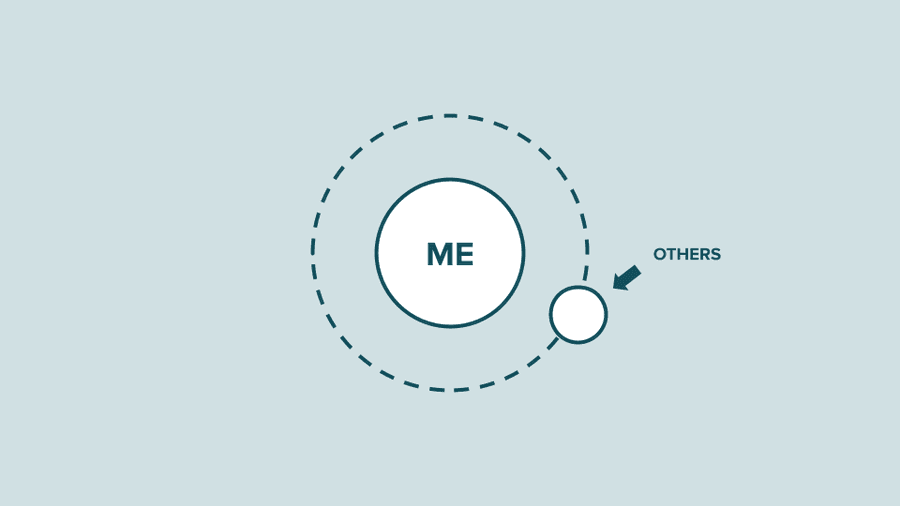The egocentric bias
It is a cognitive bias that causes people to rely too much on their own point of view when they examine or remember events in their life.
This means that people tend to either underestimate how different other people’s viewpoint is from their own, or to ignore other people’s viewpoint entirely.
575
2.21K reads
The idea is part of this collection:
Learn more about personaldevelopment with this collection
How to set boundaries to protect your energy
How to cultivate positive energy
Why rest and recovery are important
Related collections
Similar ideas to The egocentric bias
What causes the egocentric bias
It occurs primarily due to the fact that we tend to naturally examine and remember events primarily through our personal point of view.
Even when we realize that we should adjust our perspective to see things through other people’s eyes, we tend to anchor this new perspective to our ...
The egocentric bias
The egocentric bias causes us to think that our own perspectives are more important when considering events, ideas, and beliefs. For example, we tend to overestimate the amount we contributed to a team project.
The bias can make it more challenging to understand o...
Why we experience the illusion of transparency
People experience the illusion of transparency because they have a natural egocentric bias, which causes them to rely too heavily on their own perspective when trying to consider the perspective of others.
Because you spend the vast majority of your time considering your th...
Read & Learn
20x Faster
without
deepstash
with
deepstash
with
deepstash
Personalized microlearning
—
100+ Learning Journeys
—
Access to 200,000+ ideas
—
Access to the mobile app
—
Unlimited idea saving
—
—
Unlimited history
—
—
Unlimited listening to ideas
—
—
Downloading & offline access
—
—
Supercharge your mind with one idea per day
Enter your email and spend 1 minute every day to learn something new.
I agree to receive email updates
